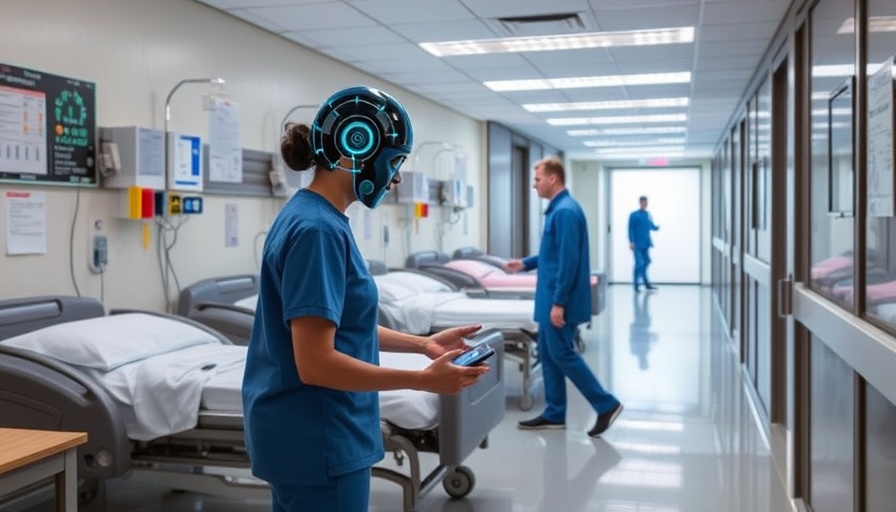
Revamping Hospital Discharges with AI Technology
In a groundbreaking pilot program, the NHS is trialing an artificial intelligence tool at the Chelsea and Westminster NHS Trust that aims to streamline the patient discharge process. Traditionally fraught with delays as medical staff navigate an avalanche of paperwork, this innovative AI technology is designed to cut down discharge time substantially, allowing patients to return home quicker.
The AI tool utilizes advanced algorithms to parse through medical records, extracting key information that is critical for drawing up discharge summaries. This includes diagnoses, treatment results, and follow-up care instructions. Wes Streeting, the UK Secretary of State for Health, highlighted the tool's potential to reduce the busywork faced by medical staff, allowing them to focus on what truly matters: patient care.
A Process Fraught with Delays
One of the major issues within hospitals today is the backlog associated with discharging patients. Normally, patients may wait hours for doctors to fill out essential discharge forms, a situation that not only prolongs hospital stays but also contributes to a bottleneck effect, leaving fewer beds available for incoming patients. By automating parts of this process, the AI tool promises to free up valuable time for physicians, enhancing overall hospital operations.
The Broader Impact of AI in Healthcare
The deployment of this AI tool is part of a larger trend towards digitization in the NHS. As indicated by Prime Minister Keir Starmer, the drive for integrating AI in public services aims to reshape healthcare delivery and improve efficiency across the board. From speech recognition software for probation officers to predictive analysis for preventing safety incidents in hospitals, these innovations reflect an era of rapid technological advancement in the UK public sector.
Concerns and Considerations
While the potential benefits of AI in healthcare are substantial, ethical challenges must be addressed. The reliance on sophisticated algorithms raises questions around data privacy and the dehumanization of patient interactions. As we embrace these technologies, society must also prioritize the development of frameworks to ensure ethical standards are maintained, safeguarding against the risks inherent in machine learning systems.
Moving Towards the Future
Innovations like the NHS's AI discharge tool serve as exemplars of how technology can be harnessed to solve real-world problems. As AI systems become more integrated into our daily lives, understanding their functionality and implications becomes crucial. This not only enables us to take advantage of advancements but also to remain vigilant about their ethical ramifications. The combination of improved operational efficiency in hospitals with heightened scrutiny ensures that this transformation is beneficial for everyone involved.
 Add Row
Add Row  Add
Add 




Write A Comment